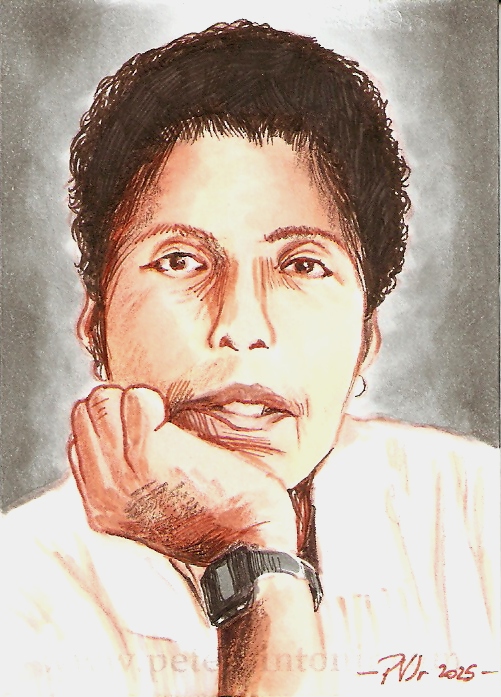Lesson 192:
Barbara Smith
An ongoing illustrative history study
This piece originally posted on 06/24/2025
 "A lot of people relate to politics as a kind of intellectual exercise. They are knowledgeable about the major issues oppressed people face; they follow current events; they may express opinions or write about injustice. What they are less likely to do is to get involved in the day to day work of organizing to make fundamental political change. They do not put themselves in situations of learning from and being led by those who are most directly targeted by systemic oppression. My observation is that all of our major leaps forward toward liberation come from the grassroots, not from the top down."
"A lot of people relate to politics as a kind of intellectual exercise. They are knowledgeable about the major issues oppressed people face; they follow current events; they may express opinions or write about injustice. What they are less likely to do is to get involved in the day to day work of organizing to make fundamental political change. They do not put themselves in situations of learning from and being led by those who are most directly targeted by systemic oppression. My observation is that all of our major leaps forward toward liberation come from the grassroots, not from the top down."
This Pride Month I have been (at the insistence of several dear friends) reading and studying the writings of Barbara Smith; author, educator, and activist. Smith was born (along with a twin sister, Beverly) in 1946 Cleveland, Ohio, to a family that prioritized education --her mother Hilda was the first generation in her family to graduate from college. Though Hilda sadly died when her daughters were only nine, her maternal grandmother then took up the responsibility, and in 1969 Smith earned a B.A. from Mount Holyoke, and then in 1971 attained her Master's from the University of Pittsburgh. She promptly took a faculty position at Emerson College.
Activism would seem to have been baked into Smith's very soul; besides being a part of the some of the earliest boycotts and protests of the 1960's, one of her earliest and still most significant accomplishments was in 1974; the founding of the Combahee River Collective in Boston, Mass. Its mission statement (co-authored with her sister Beverly and Demita Frazier) stated, in part, a commitment to exploring the intersection of multiple social oppressions within the wider feminist movement; not just racism but also heterosexism. The Collective and its published analyses encouraged more women to identify as lesbian or transgender, or in fact any other sexual orientation in the context of their social justice work. Over the course of her burgeoning lecturing and publishing career, Smith's orbit intersected with that of Audrey Lorde (see Lesson #12 in this series); and in 1980 they developed Kitchen Table: Women of Color Press, significant as the first U.S.-based publisher of books for women of color. In 1983 one of Smith's projects, Home Girls: A Black Feminist Anthology, became the first publication to consciously integrate Black lesbian authors with those of other Black writers.
In 1994 Smith received the Stonewall Award for Service to the Lesbian and Gay Community, and in 1995-1996 served on the advisory council of the Arturo Schomburg Center for Research in Black Culture (see Lesson #131). In 2005 she was nominated for a Nobel Peace Prize, and that same year briefly entered politics when she was elected to the Albany, NY city council.
Read an engrossing 2019 Ms. magazine interview with Smith
Next lesson - Lesson 193: Norris B. Herndon
Return to www.petervintonjr.com Main Page
 "A lot of people relate to politics as a kind of intellectual exercise. They are knowledgeable about the major issues oppressed people face; they follow current events; they may express opinions or write about injustice. What they are less likely to do is to get involved in the day to day work of organizing to make fundamental political change. They do not put themselves in situations of learning from and being led by those who are most directly targeted by systemic oppression. My observation is that all of our major leaps forward toward liberation come from the grassroots, not from the top down."
"A lot of people relate to politics as a kind of intellectual exercise. They are knowledgeable about the major issues oppressed people face; they follow current events; they may express opinions or write about injustice. What they are less likely to do is to get involved in the day to day work of organizing to make fundamental political change. They do not put themselves in situations of learning from and being led by those who are most directly targeted by systemic oppression. My observation is that all of our major leaps forward toward liberation come from the grassroots, not from the top down."